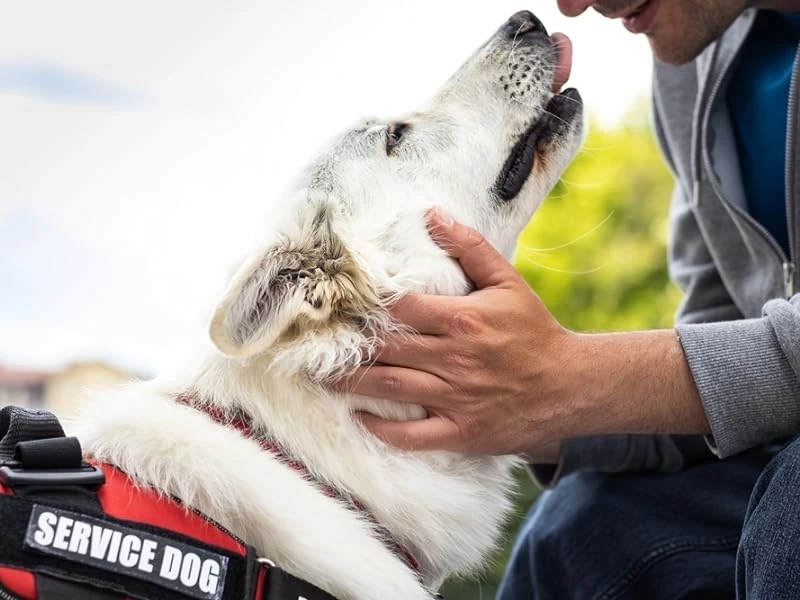Having a loyal companion by your side who is always ready to provide comfort and support when you need it most is a blessing. That's the role of an emotional service animal.
These remarkable animals undergo rigorous training just for emotional service animal registration to help you in the best way possible. In this blog, we'll explore the training regimen of emotional service animals and how it prepares them to assist those in need.
Obedience Training: The Foundation of a Strong Partnership
Obedience training is the foundation of any good relationship, and it's no different for emotional service animals. These animals are trained to respond to basic commands such as sit, stay, and come.
They learn to remain calm and focused on various situations, from crowded streets to busy stores. Obedience training helps establish trust and respect between the animal and its handler, setting the stage for a strong and effective partnership.
Task-Specific Training: Tailored to Your Needs
Emotional service animals are trained to perform specific tasks that mitigate their handler's disability. These tasks can range from providing deep pressure therapy to alerting the handler to the onset of a mental health episode.
The training is customized to the individual's needs, ensuring the animal is prepared to provide the necessary support. For example, if you have a history of anxiety attacks, your emotional service animal might be trained to lie on you during an episode, providing a sense of calm and security.
Public Access Training
Public access training is important for emotional service animals. They need to be able to go through public spaces, from crowded streets to busy stores, without causing a disturbance.
This training helps them build the skills to ignore distractions, avoid begging for food, and remain under the handler's control at all times. Public access training also prepares the animal for unexpected situations, such as loud noises or sudden movements, ensuring they remain calm and focused.
Socialization
Socialization is an important part of emotional service animal training. These animals need to be exposed to various environments, people, and situations so that they remain calm and friendly.
Socialization helps build a strong bond between the animal and its handler, fostering trust and understanding. It also prepares the animal for unexpected encounters, such as meeting new people or facing unfamiliar objects.
Takeaway
The bond between an individual and their emotional service animal is a life-changing connection. With a comprehensive training regimen, these remarkable animals become indispensable partners, ready to provide the support one needs to face the challenges of mental and emotional disabilities.
At the heart of this training lies the mastery of essential skills – obedience, task-specific capabilities, public access proficiency, and unwavering socialization. Each step of this journey equips the emotional service animal to anticipate and respond to their handler's needs and for the process of emotional service animal registration.



